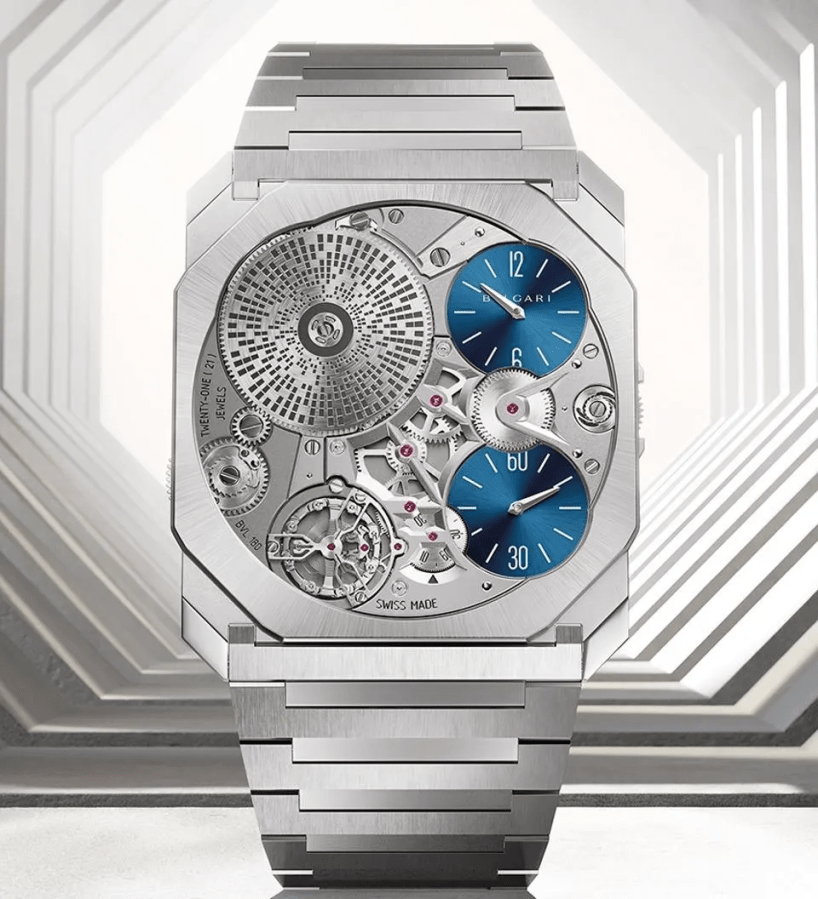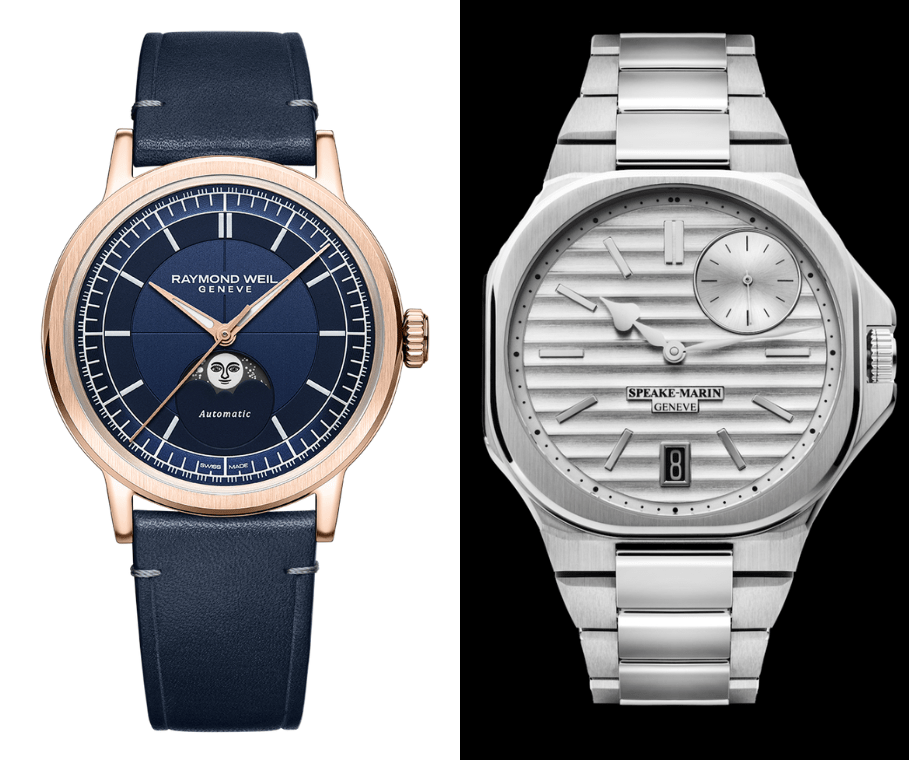At Watches and Wonders Geneva, which started Tuesday, IWC Schaffhausen unveils a world’s first perpetual calendar watch. The brand says it boasts a moon-phase indicator that accurately tracks the celestial body for 45 million years. The Portugieser Eternal Calendar also incorporates a 400-year gear system to account for leap years and skipped leap years for incredible accuracy over centuries.

IWC Schaffhausen’s Portugieser Eternal Calendar offers moon phase accurate for 45 million years.
IWC Schaffhausen
It is a lot to unpack—especially without getting too technical. But this watch is worth the time and effort it may take to understand its intricacies and its incredible longevity. To create this years-in-the-making timepiece, IWC’s master watchmakers and engineers drew upon its extensive, more than four decades long, expertise in perpetual calendar wristwatches.
Essentially, the timepiece is equipped with an all-new movement that takes into account multiple aspects of long-term precision timing. To begin with, the watch accommodates varying month lengths (28, 30 and 31 days), the leap year addition of a day that happens every four years, and more thanks to a revolutionary gear system mechanically programmed for 400 years.

At Watches & Wonders Geneva 2024, IWC unveils a revolutionary new secular perpetual calendar: the Portugieser Eternal Calendar with 400-year cycle.
IWC Schaffhausen
This means that the watch will skip three leap years over the next four centuries that should happen, but that will be omitted in order for the solar calendar to stay in sync with the Gregorian calendar and its leap-year exceptions (new centuries not exactly divisible by 400).
The year 2100 (along with the years 2200 and 2300) is one of those years that the leap year will be skipped. For most existing perpetual calendars, it is in the year 2100 that they will need an adjustment by a watchmaker to accommodate the skip.
Those same perpetual calendars will need yet another adjustment in 2200 and 2300.

The new watch, which was years in the development stages, houses an all-new movement, caliber 52640.
IWC Schaffhausen Portugieser Eternal Calendar
However, IWC’s Portugieser Eternal Calendar, a secular perpetual calendar, will not need those adjustments because the movement with its 400-year gear is mechanically programmed for these nuances—a revolutionary concept. In fact, the calendar will calculate the leap year correctly until the year 3999.
According to the brand, the Portugieser Eternal Calendar is programmed for a four-year cycle, but is further equipped with an additional mechanism. “Every four years at the end of February, a new module informs the calendar about whether the leap year takes place or not. This so-called 400-years gear completes only one revolution every four centuries. It contains three indentations, which cause the calendar to skip three leap years over that period.”

The IWC Schaffhausen’s Portugieser Eternal Calendar features a sapphire casebook inset for viewing the movement and specially made rotor.
IWC Schaffhausen Portugieser Eternal Calendar
Additionally, the Portugieser Eternal Calendar takes IWC’s exceptional prowess with long-term accuracy of moon phases to all-new heights. The challenge in tracking the moon phases accurately is one that involves real-time differences in the moon’s waxing and waning. IWC’s master engineers worked with a computer program to develop a new reduction gear train that uses three intermediate wheels to ensure that the Double Moon™ displays will be accurate for 45 million years before deviating by just one day. The Double Moon indication at 12:00 on the watch dial showcases the moon from both the Northern and Southern hemispheres using two superimposed disks.
The entire mathematical mechanical marvel is run by the new in-house-developed caliber 52640 that boasts a Pellaton winding system and seven days of power reserve. The automatic movement displays the date, day, month, year, perpetual moon phase for both hemispheres and a small hacking seconds.
As for aesthetics, nothing is lost on this Portugieser Eternal Calendar. It boasts a revolutionary glass dial whose underside is frosted and lacquered so that when the appliques are printed on top they seem to float in space. The dial is protected by a double box-glass sapphire crystal. The case back is also sapphire to allow for viewing of the intricate movement. The watch is cased in platinum and is finished with a Santoni black alligator strap. The IWC Portugieser Eternal Calendar retails for $155,000.
This article was first published on forbes.com and all figures are in USD.


